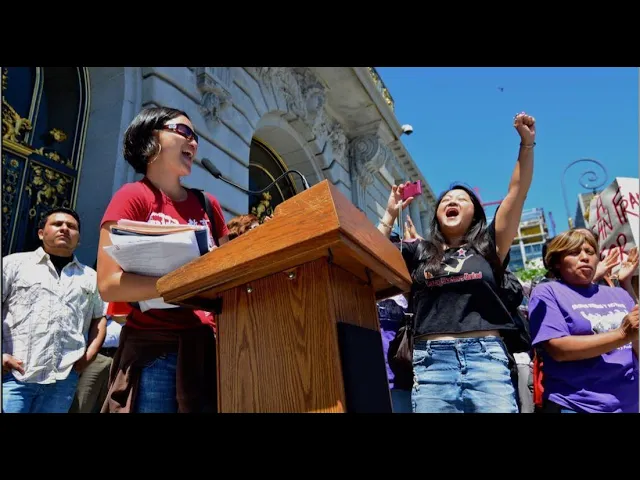Watch: What is Co-Governance?

We all have the same needs: a safe place to live, fair working conditions, a good education for our kids, and medical care when we need it. We want a say in how government affects our lives.
But every day, the far right is passing legislation that strips us of our basic democratic rights. Our right to teach our kids the truth about our history. Our right to have an abortion, to vote, to protest, to make a livable wage, to be who we are.
It doesn’t have to be this way.
We can build an inclusive multiracial democracy that gives us a meaningful role in the policy decisions that affect us: decisions not just about which candidate to vote for, but about how the key institutions in our lives–like housing, employment, wealth, income, schools, and health care–should work for all of us.
This is called co-governance.
Different forms of co-governance have existed for centuries. Before colonial take over of the Americas, some Indigenous nations had already created participatory democratic systems.
Co-governance breaks down the boundaries between government and the public to bring people who are directly impacted by policy decisions– like workers, parents, students, tenants, and patients–into direct roles in helping make public policy decisions and making sure they’re implemented effectively and equitably.
Co-governance has the potential to shift decision making power over the laws, policies, and public budgets that shape our communities.
Across the country, co-governance efforts are reshaping the ways government works.
In Jackson Mississippi, a city marked by centuries of racist politics, the People’s Advocacy Institute has built people’s assemblies to give local residents a voice in setting the city governments’ agenda, as residents grow their leadership and build community power.
In Paterson, New Jersey, local parents and grandparents in the Paterson Education Fund and the Parent Education Organizing Council have worked closely with the school district to shift school policy from harsh discipline toward restorative justice for kids.
And in San Francisco, the Chinese Progressive Association has fought for—and won—strong worker-centered enforcement laws, legal processes, and working relationships with the city and the state, enabling low-wage immigrant workers to enforce their own labor rights in restaurants, garment factories, and other industries.
These models are powerful because they draw on the strengths of both communities and government.
They recognize us as experts on our own workplaces, neighborhoods, schools, hospitals and other institutions, and respect the deep, personal stake we have in making sure these institutions work for people.
They also draw on the unique powers of government: the ability to raise taxes, fund public programs, create and enforce laws, regulate private industries, and coordinate collective action.
We can have a more just, democratic, society. We need one. And we can build it together.
